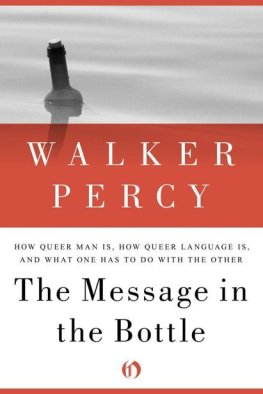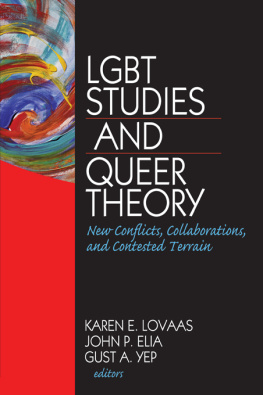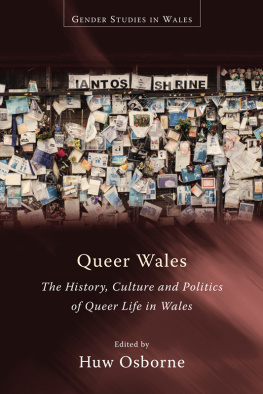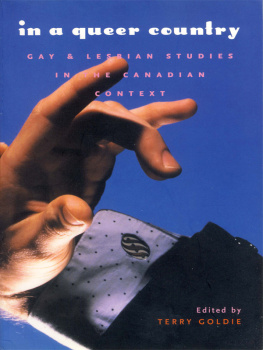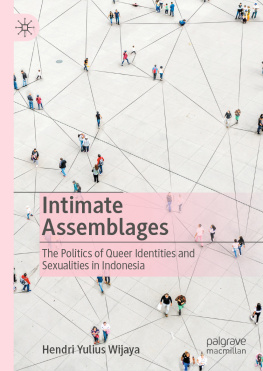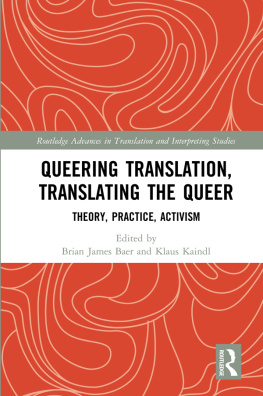
CHANCES ARE
This innovative work makes use of psychoanalytic, queer, and narrative theories to read nineteenth through twenty-first-century American literature and demonstrate how the concept of contingencywhether chance, accident, luck, or mutationenriches our understanding of how queer sexualities are articulated.
Perhaps love always carries an element of contingency (our attraction to a particular person can be arbitrary and inexplicable), and a sense of necessity (we find that we cannot imagine life without them). But contingency and chance mean something different for queer subjects. In a heteronormative culture, heterosexuality claims to be necessary (it must be), whereas homosexuality not only could be otherwise, but perhaps it should be otherwise, and probably it should not be at all.
This book outlines why and how issues of chance and contingency should matter to queer theory and queer literary studies. Combining psychoanalytic, queer, and narrative theories, Chances Are considers texts that formally or thematically involve contingencies of their own, including narrative coincidences and accidents, the role of luck in notions of race and class, and efforts to imagine queer hermeneutic methods that make space for contingency. Literary texts include Edgar Allan Poes The Mystery of Marie Rogt (1842), Horatio Algers Ragged Dick novels (186869), Frank Norriss The Pit (1903) and Edith Whartons The House of Mirth (1905), Frances E.W. Harpers Iola Leroy (1892) and Nella Larsens Passing (1929), Alison Bechdels Are You My Mother? (2012), and H.D.s Tribute to Freud (1956).
This dynamic and original text would be suitable for students and researchers in literary studies, critical theory, womens and gender studies, and LGBT studies.
Valerie Rohy is a Professor of English at the University of Vermont. She is the author of Impossible Women: Lesbian Figures and American Literature (Cornell, 2000), Anachronism and Its Others: Sexuality, Race, Temporality (SUNY, 2009), and Lost Causes: Narrative, Etiology, and Queer Theory (Oxford, 2015).
First published 2020
by Routledge
2 Park Square, Milton Park, Abingdon, Oxon OX14 4RN
and by Routledge
52 Vanderbilt Avenue, New York, NY 10017
Routledge is an imprint of the Taylor & Francis Group, an informa business
2020 Valerie Rohy
The right of Valerie Rohy to be identified as author of this work has been asserted by her in accordance with sections 77 and 78 of the Copyright, Designs and Patents Act 1988.
All rights reserved. No part of this book may be reprinted or reproduced or utilized in any form or by any electronic, mechanical, or other means, now known or hereafter invented, including photocopying and recording, or in any information storage or retrieval system, without permission in writing from the publishers.
Trademark notice: Product or corporate names may be trademarks or registered trademarks, and are used only for identification and explanation without intent to infringe.
British Library Cataloguing in Publication Data
A catalogue record for this book is available from the British Library
Library of Congress Cataloging-in-Publication Data
A catalog record has been requested for this book
ISBN: 978-1-138-29058-7 (hbk)
ISBN: 978-1-138-29060-0 (pbk)
ISBN: 978-1-315-26610-7 (ebk)
It has been my good fortune to have the support of many people during the writing of this book. I am grateful for the colleagues at the University of Vermont and elsewhere who read portions of the manuscript, offered suggestions, and provided opportunities to publish or present parts of the work in progress; they include Bonnie Burns, Dan Fogel, Elizabeth Freeman, David Greven, Ellis Hanson, J. Gerald Kennedy and Scott Peeples, E.L. McCallum, Madhavi Menon, Jonathan Mulrooney, Judith Roof, and Robyn Warhol. I thank Todd McGowan for helping me clarify the stakes of this book at the beginning and advising me on some conceptual problems toward the end. Lee Edelman saw the seeds of this project in my previous book and continues to remind me why our work matters. It has been a privilege and a pleasure to discuss this book with Alison Bechdel, who convinced me to take a chance with the conclusion. I am once again indebted to Matt Bell for his incisive and kind readings of several chapters. And Liz Fenton deserves special recognition for carefully reading a great deal of this project, hearing far too much about it, and generally being a colleague for whom anyone would thank their lucky stars.
Throughout this project I have also been sustained by generous friends and colleagues who offered personal assistance, collegial encouragement, and queer solidarity. In addition to some of those mentioned above, I thank John Aberdeen, Ellen Andersen, Kathleen Bailey, Emily Beam, Mary Burke, M. Soledad Caballero, Isaac Cates, Paul Deslandes, Marjorie Dickstein, Sean Field, Anna Formichella, Kathy Fox, Susanmarie Harrington, Kate Jerman, Kristen Johanson, Pete and Tracey Kushner, Elliott McEldowney, Beth Mintz, Hilary Neroni, Liam Nolan, Holly Painter, Jen Sisk, Sara Solnick, Meg Tamulonis, Chris Vaccaro, Richard Wells, Helen Scott, and Jackie Weinstock.
The University of Vermont contributed substantially to this book by granting me a two-semester sabbatical in 2018. The English Department funded two meticulous research assistants, Kaitlin Chase and Kim Davis, who helped me correct and edit the manuscript, and the superb English Department staff, led by Holly Brevent, supported the project in myriad ways. At Routledge, Alexandra McGregor has been a wonderful editor; I also thank the presss two reviewers for their thoughtful comments.
An earlier version of Chapter 3 was published in The Oxford Handbook of Edgar Allan Poe, edited by J. Gerald Kennedy and Scott Peeples. New York: Oxford University Press, 2019, 224235. doi:10.1093/oxfordhb/9780190641870.013.13. It is reproduced by permission of Oxford University Press. Chapter 7, Exchanging hours: a dialogue on time, was originally published in GLQ: A Journal of Lesbian and Gay Studies, Vol. 23:2, pp. 247268. Copyright 2017, Duke University Press, all rights reserved. It is republished by permission of the copyright holder, www.dukeupress.edu. I thank both for permission to reprint these essays here, and I am grateful to Houghton Mifflin Harcourt for permission to use images from Bechdels Are You My Mother? in Chapter 6. Figures 6.1, 6.2, and 6.3 are reproduced with permission from Are You My Mother?: A Comic Drama by Alison Bechdel. Copyright 2012 by Alison Bechdel. Reprinted by permission of Houghton Mifflin Harcourt Publishing Company. All rights reserved.
Perhaps love always carries an element of contingency (our attraction to a particular Other is arbitrary and inexplicable), and a sense of necessity (we find that we cannot imagine life without them). And yet, we would be foolish to cede to ordinary luck the power to explain our intimate encounters and missed encounters, for as Highsmith knows, the world makes life easy for some and not others in ways that are far from random.
Among recent proponents of this idea, see Alain Badiou, In Praise of Love, trans. Peter Bush (London: Serpents Tail, 2012): the absolute contingency of the encounter with someone I didnt know finally takes on the appearance of destiny (43). For Badiou this echoes his notion of the fundamentally aleatory event; see


